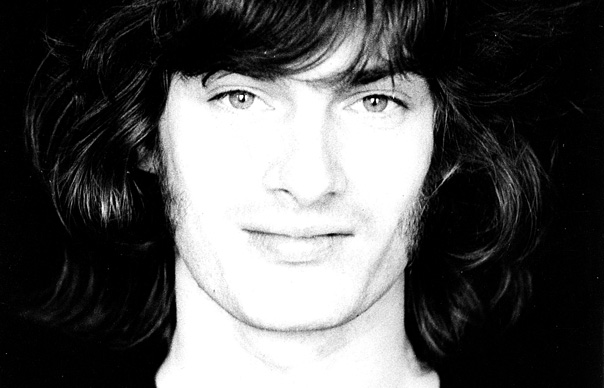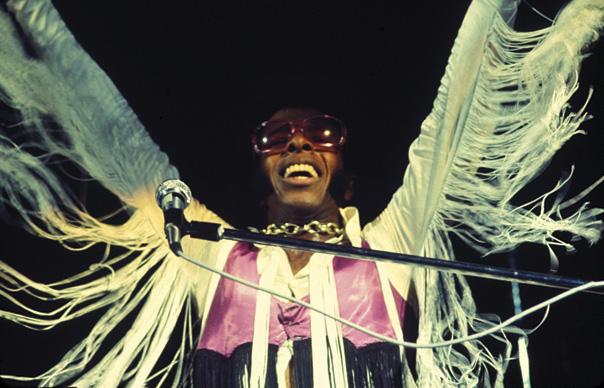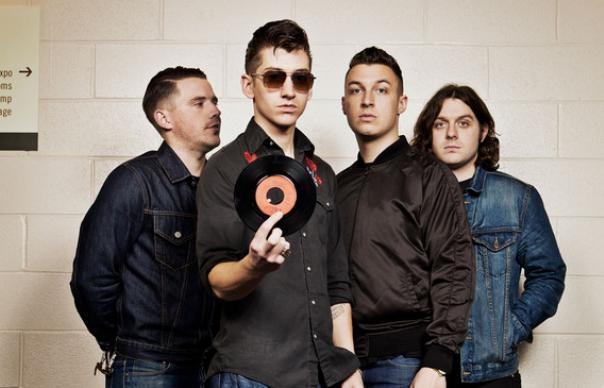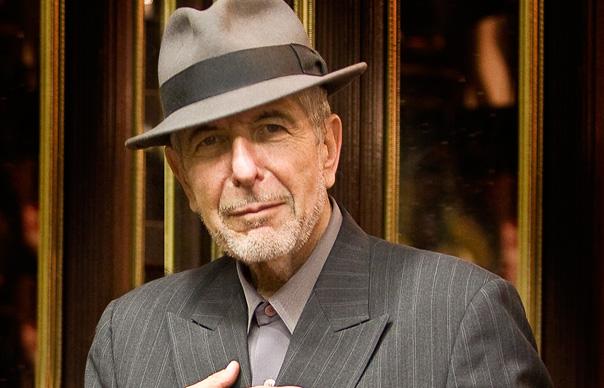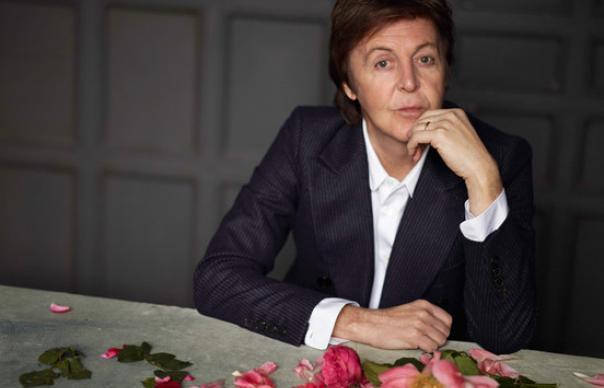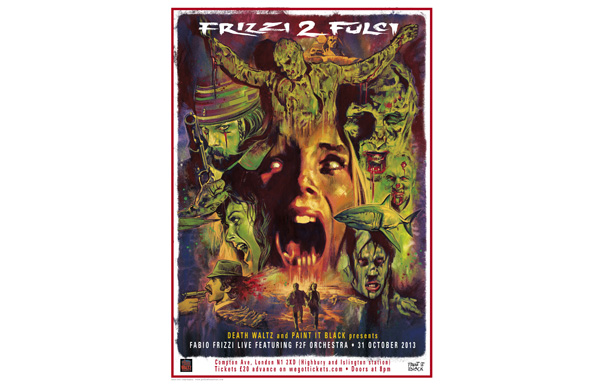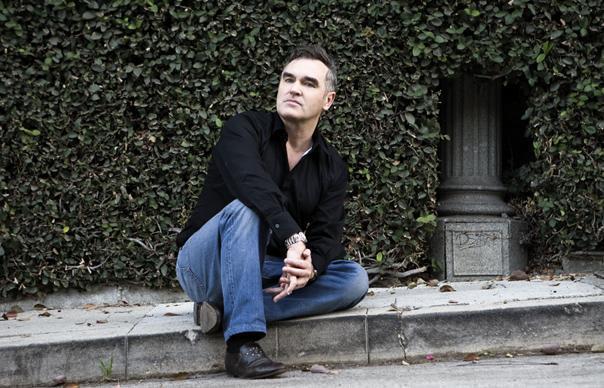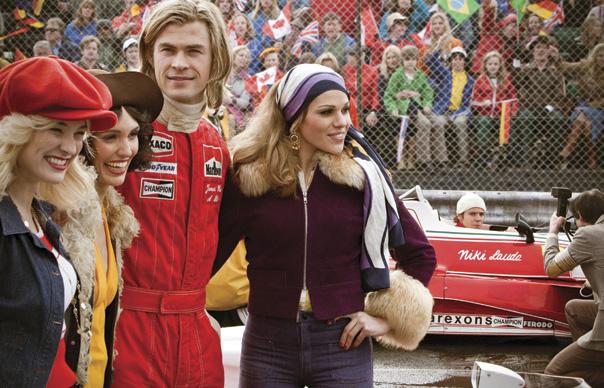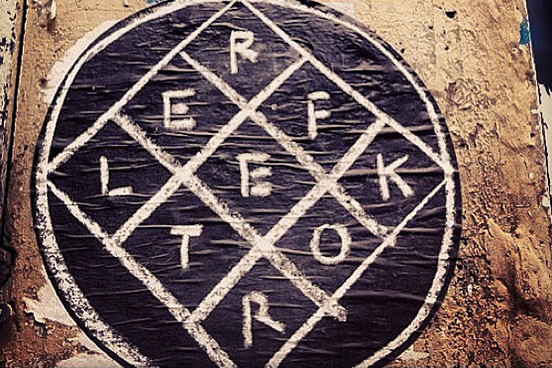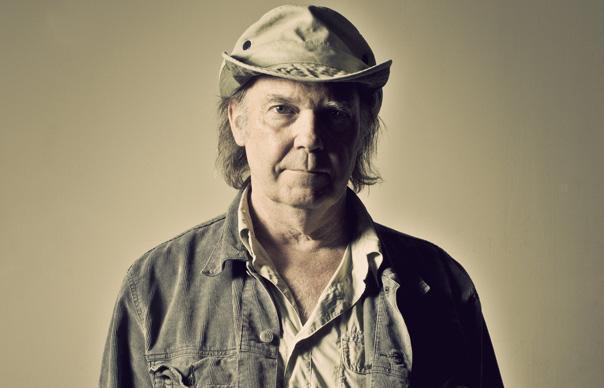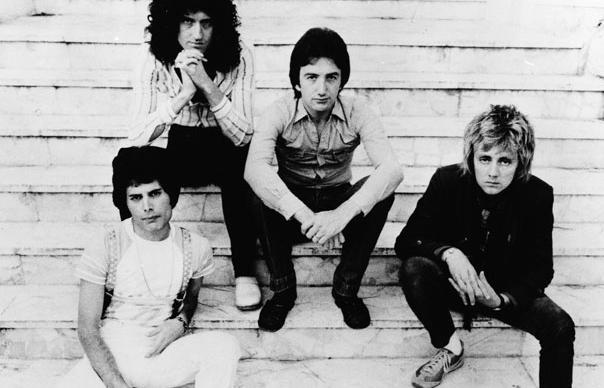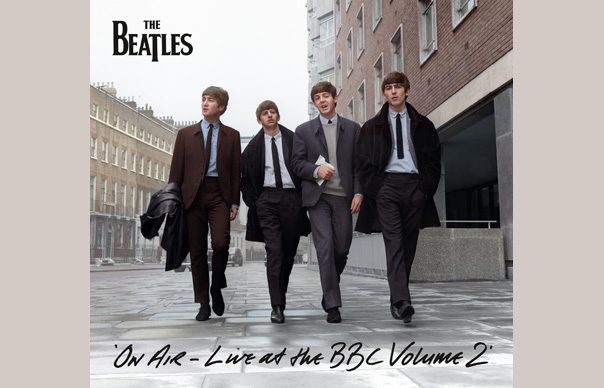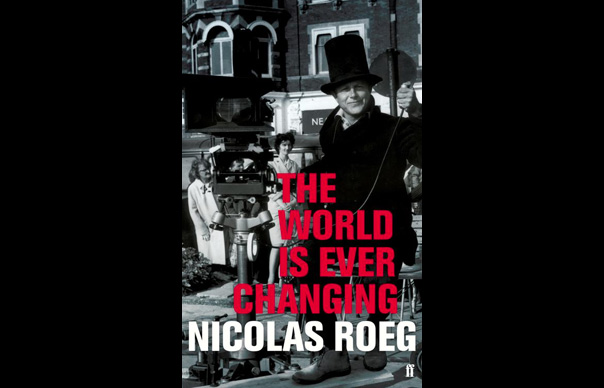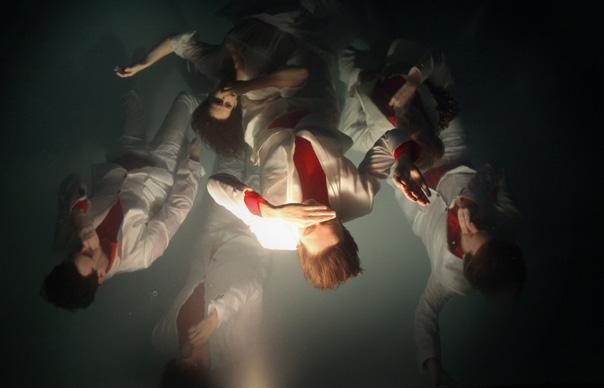With Kings Of Leon’s sixth album, Mechanical Bull, set for release on September 23, we thought it would be time to take a trip through the archives into November 2010 (Take 162), when we joined the Followill clan on the road in America – we hear of uncanny robberies, an army of Kings lookalikes, whiskey-fuelled anxieties and a new power struggle within this most volatile of bands. Do they want to be rootsy outlaws or modern rock superstars? Words: Jaan Uhelszki
_________________
Caleb Followill is perched on a barstool at the Rock Bottom bar, an upscale brew pub in Indianapolis, Indiana. To either side of him are The Black Keys’ Dan Auerbach and Patrick Carney, who have supported Kings Of Leon earlier in the evening. The show, at the Verizon Music Center in nearby Noblesville, has been a triumphant one. In front of 24,000 people, the Kings have tried out a bunch of new songs from their yet-to-be released fifth album, Come Around Sundown, and the crowd haven’t headed out for beers during any of them.
Caleb, reasonably, deems this a cause for celebration, and orders shots of Patrón Silver tequila for himself and his two companions. Every so often glasses are raised, and he throws a brown leather-jacketed arm around one of his pals, his eyes getting a deeper blue – and a little blurrier – with each round of drinks. The relief is obvious, not least because the singer has been so anxious about Come Around Sundown that, for a good while, he wouldn’t listen to it himself, or even let his girlfriend hear it. Come Around Sundown is an album that is calculated, on one level, to confirm Kings Of Leon as one of the very biggest bands in the word. But on another, it sees Caleb Followill leading his brothers Nathan (31, drums) and Jared (23, bass), and their cousin Matthew (26, guitar) into distinctly rootsier territory; towards a sound, perhaps, that not all of them will be entirely comfortable with.
“I fought more with myself on this album than I ever have,” says the 28-year-old, settling down for the night in the Indianapolis bar. “I just didn’t have the confidence in it. I could tell my favourite songs on the album were not Jared and Matt’s favourite songs, and their favourite songs were not mine.
“I didn’t write lyrics. I went in and ad-libbed, I free-floated everything. The closer it got to the end, I felt like, ‘Man, you didn’t do your job.’ I kept thinking, ‘When I go back and redo the lyrics, then I’ll get it. Then I’ll feel confident.’ But when I went back to try to do that, everyone was like, ‘What are you doing? You can’t change those lyrics. Those are the lyrics.’
“I still wasn’t convinced. I mean, I never even played the music for my girlfriend [lingerie model Lily Aldridge]. I had a big fear about it. Then one night we were sitting there and I’d been listening to some Townes Van Zandt and drinking a little bit of whiskey. I was nervous, and I try not to drink too much whiskey because it brings out the rooster. But I was sitting there frustrated, listening and listening to Townes. Lily came over and set a bottle of Jameson’s in front of me, and walked in the other room. And I opened it up and I started drinking it, and I said, ‘Hey, you want to hear something?’ She said, ‘Yeah.’ I played her one song and when I did, she looked at me and went, ‘What the fuck? Why haven’t you played me this? What are you scared of?’ Before you know it, we had listened to every song, and she just loved it. That gave me the confidence to say all right, well, maybe I’m in my head too much.”
Three weeks earlier, Kings Of Leon are headlining the Outside Lands festival in San Francisco’s storied Golden Gate Park. It’s easier to envisage this place as the sylvan spot Robert Plant was rambling on about in Led Zeppelin’s “Misty Mountain Hop” than as an urban park a mere mile west of the vertiginous towers and tumbling hills of downtown ’Frisco.
Tonight, the crowd numbers 30,000 – one of the band’s biggest American shows thus far. When the quartet, in their scuffed Dior Homme boots, step onto the park’s Speedway Stage, they’re treading the same boards once walked on by The Grateful Dead; indeed, Bob Weir and Phil Lesh, with Furthur, headlined Outside Lands the night before. These former polo fields saw Janis Joplin worrying her love beads and taking a healthy swig of Jack before leaping into her own fabled history. And this is where the beautiful, acid-caustic Grace Slick keened and wailed about finding someone to love. Quicksilver Messenger Service, Spirit and the mighty Moby Grape filled these same fog-shrouded lowlands with the sound of the coming future.
But today, the future belongs to this band of brothers (and cousin Matthew, of course), who audaciously christened themselves Kings Of Leon after the middle names of their father and grandfather. Not Sons Of Leon, but something grander and further-reaching.
“We thought of calling ourselves Sons Of Leon, but Matt wasn’t a son of Leon,” Caleb says dryly. “Then we thought of just Leon. The record company wanted us to be The Followills, but we figured if there’s a Queens Of The Stone Age, we could certainly be the Kings.”
Sons Of Leon, it’s true, couldn’t possibly reflect or encompass the band’s lofty ambitions. As the October 18 UK release date of Come Around Sundown approaches, they’ve already racked up more than 11 million in CD sales worldwide. Following fan-club pre-sales, 40,000 tickets for their London Hyde Park concert on June 30 this year reputedly sold out in one second. Maybe the Kings keep annexing new territories because they connect with people in somewhat the same way their forefathers, those ’60s pilgrims in Golden Gate Park, did – with a mixture of sedition, innocence and a belief that music really can change the world.
“Well, music changed us,” Caleb Followill says quietly. “That’s the thing, years ago music changed the world. We weren’t listening to that music years ago, and so now that we’ve experienced it, it did change us. It made us, it defined us. It still to this day is defining us.”
When they toured as support to U2 in 2005, the Kings measured their drawing power against the Irish band not by ticket sales or Marshall stacks, but by the girth of their security guards. “They definitely had some bigger security guards,” Caleb says. “I think we got ’em now, though.” At the end of each show on their current tour, they speed away from the show in four individual black Chevy SUVs with dark-tinted windows.
“Each one is outfitted with what we drink and our own towels,” notes Jared, who clearly likes the rock star treatment. “It helps so much being secluded from each other, ’cos then when we see each other, it’s like, OK, we’re working now, and when we’re home we can be brothers. If you’re brothers on the road, that’s when shit gets crazy. At one point we all four had girlfriends: who’s going to be the couple that sits in the fucking bucket seats in the back?”
“Truthfully, I think [the SUV caravan] came from them wanting to go to other places after the show, and then me pretty much always wanting to leave and go back to the hotel room,” explains cousin-guitarist Matthew Followill, fidgeting with the toe of a spit-polished black Beatle boot. “The rest of them would be like, ‘Jared’s got to ride with you.’ But Jared would want to stay.
“It’s funny,” Matthew chuckles softly. “The bus follows, so everybody thinks we’re in the bus, and then they think, like, did the President come to the Kings Of Leon show tonight?”
_________________
The Followills all but invented rock music for themselves. Growing up the sons of an itinerant preacher innocent of Chuck Berry, The Beatles and the Stones, they scarcely even heard rock music apart for one or two Tom Petty cassettes that their father allowed when the family barrelled from church to church down rural Southern backroads.
In 1997, though, everything changed. The Followills’ father Ivan Leon, an alcoholic, was defrocked and stripped of his living. He divorced his wife, and the boys were sent to live with their mother, first in Oklahoma City, then in Tennessee. It is an origin story that’s well on the way to becoming as well-worn as that of Robert Johnson at the crossroads.
“But thanks to a couple pigeons in St Louis, I think the family story will be put to rest and we’ll be answering bird questions for the rest of our career,” laughs Nathan Followill. The drummer is referring to the defecating pigeons who famously forced the abandonment of a July 23 show at the Verizon Wireless Amphitheatre in Maryland Heights, Missouri. An infestation of birds in the rafters bombarded the musicians with dirty bombs during the first two songs, seeming to take particular aim at Jared.
“In the end, [the incident] helped us more than it hurt us. It’s just one of those things, and looking back on it, it’s a lot funnier now than it was when it happened,” Nathan explains, taking off his glasses and putting them back on. Before the Golden Gate Park show, Nathan posted a photo of local pigeons to his Twitter account. “Uh oh. Say it ain’t so San Fran,” said his sub-140-character communiqué. “I’m wearing a big hat just in case.”
“You know you’ve made it,” he says now, “when you read the ticker on CNN or MSNBC and it’s ‘Kings Of Leon cancel show due to pigeon faeces aerial assault.’ Like, honestly, who gives a shit about pigeon shit? Apparently a lot of people.”
“Like Rush’s singer,” Caleb chimes in. Playing the same venue a few nights later, Geddy Lee pointed at guitarist Alex Lifeson and told the crowd, “Well, I don’t care how much those pigeons shit, he’s not leaving!” “The guy from Oasis, too,” Caleb adds. “But even if you get tired of us, it’s pretty neat people are that interested they want to know what’s going on.”
We wouldn’t be talking about any of this today if Nathan, Caleb and their cousin Nacho hadn’t been painting houses in suburban Oklahoma City in 1999. They were sniffing the fumes, in pursuit of a cheap altered state, when something snapped inside Caleb. “I thought, ‘This is too much like my dad,’” he says. “I couldn’t go on this way and waste my life. I heard a voice in my head say, ‘Write music.’ Maybe it was the fumes.”
The idea came out of nowhere, since the brothers hadn’t even had youthful aspirations to be in a band and, aside from playing drums in church, had no instrumental experience. “We never even considered being in a band,” says Nathan Followill. “Basketball star, maybe, but never a rock star.”
Once Caleb heard that disembodied voice, he was unstoppable, relocating to Jackson, Tennessee. Nathan didn’t follow right away, but instead attended a nearby college on his way to getting a degree in sports rehabilitation. But a few months later the two brothers were staying at their grandmother’s place.
“Nathan says to me, ‘Hey, man, let’s go write a song.’” Caleb remembers. “And I was like, ‘What do you mean, let’s write a song? We don’t play instruments.’ He said, ‘That’s all right. Let’s just go write a song.’ And we went in there and the first song we wrote was terrible – the first thousand were terrible. But after we wrote that song, it was kind of good.”
If Caleb had any doubt he was called to make a joyful sound unto the Lord – and unto millions across the world – it was dispelled one Easter Sunday, when his mother pressured the two brothers to attend church with her.
“We didn’t have to work, so we said all right,” he says. “We got all gussied up and we went to church. And at the end of the service, everyone went down to the front just to shake hands with the preacher. I recall just sitting there because I was always nervous in church: I knew God was going to be, like, ‘What are you doing? You’re supposed to be here doing this.’ Anyways, the preacher’s thanking everyone for coming, and when he gets to me he stopped and said, ‘You are going to be in front of multitudes. God just told me that.’”
“I thought he meant I was going to be a preacher,” Caleb says. “Anyways, I fought with it and fought with it and lost sleep over it, thinking, ‘Man, don’t do music. This isn’t right.’ Skip ahead to a couple years ago, we walked onstage to headline Glastonbury and I was nervous as could be, and I walked out there. The crowd was loud, and then it all just went dead quiet. And as God is my witness, I heard [that preacher’s] voice say, ‘You’re going to be in front of multitudes.’ And chills went all down my spine. I said to myself, ‘This is what he meant.’ He might not have known it, but this is what he meant.’
“You know,” Caleb says, playing with the collar of his faded blue workshirt, “when it comes to singing, all I wanted to be was the preacher. And that’s how Mick Jagger used to do it. Even Iggy. I’ve accepted I’m just going to be a preacher with a guitar.”
Bono once said, “The music that turns me on is either running toward God or away from God.” In the Kings Of Leon, it’s a little of both.
_________________
Sunday, August 15. The sun goes down behind a ring of tall cypress trees, turning the San Francisco night into a massive black canvas. At precisely nine o’clock, Mos Def’s “Quiet Dog” booms out over the Outside Lands crowd. The recording not only galvanises the Followills, but functions as the band’s “two-minute” warning. It’s a rather confrontational rap – a chest-beating avowal to not cave in, give up, or compromise – which mirrors where the Kings are right now. “God gave it to me, nobody is takin’ it!” Def bellows over the PA, as the Followills make their way to the stage. The Kings’ road crew ignite huge flashpots (the kind Kiss use) filling the stage with a murky red haze. “When you see red smoke, the next thing you expect to see is Satan,” someone in the crowd drawls.
The demonic mood is barely lightened by Mozart’s “Lacrimosa (Requiem in D Minor)”, the composition Mozart was working on before his highly suspect death. As sacred music goes, this Mass For The Dead is dark and ominous, the sound of restless spirits caught between this world and the next. Which leads one to wonder who selected this number for pre-stage music, and to what purpose? Is the Mozart meant to reflect something of the Kings’ own anguished souls? Or as a sign of their growing musical scholarship – something that continues to escape many.
“When we first came out, we looked like we’d walked out of the woods, and our story was, basically, ‘We walked out of the woods,’” says Nathan Followill, shaking his head in bemusement. “Some people still think we’re like that – not too much more than the Beverly Hillbillies.”
In fact, each Kings Of Leon LP has become more sophisticated than its predecessor, the sonics becoming progressively more advanced as they craft their own Wall Of Sound, albeit one which has more in common with Pink Floyd than it does Phil Spector. The Followills’ songwriting prowess has kept pace with their ability to play their instruments, and while not virtuosos by any stretch of the imagination, they have become more skilled and daring. Until recently, the only thing missing was a lack of stage presence.
But by the September show in Noblesville, Caleb Followill seems to have found his inner rock star, pitching water bottles into the front rows after he’s taken a swig, pointing a crooked finger out into the audience during “Charmer”, even tugging at the crotch of his pants during the band’s “Four Kicks” – something that would have been implausible only a year ago.
“I heard people from the cornfields were crazy, but I didn’t know how crazy,” he tells the crowd. “I hope you guys are having as good a time as I am,” he continues, wiping his strong, symmetrical face with a Turkish towel, then tossing it, Elvis-like, into the crowd. “Sometimes I say that from the stage because I think that’s what people want to hear. But tonight I really am.”
After the show, I bring up the onstage changes with Caleb in the Rock Bottom bar. You seem so much comfortable onstage than you used to. Did you really mean that when you told the crowd you were having a good time?
“I was,” nods Caleb, sandwiched between The Black Keys. “But then, of course, it was just the drugs.”
Self-effacing, and a little shy for a world-straddling frontman, Caleb’s stage presence has come a long way from the days when he hid behind a full beard and a swatch of knotted scarves, singing with this eyes tight-shut. Brother Jared, meanwhile, now holds his bass low and dangerous, much like Johnny Ramone used to clutch his favourite Mosrite. “Of course I do that on purpose,” he says. “It’s much easier to hold the bass up high. But I didn’t want to be obvious. I lowered my strap one inch at a time. I mean, it would have looked a little stupid if one show I was holding it up here, and the next show it was really, really low.”
Jared is anything but stupid, and among the four, he is the one who seems most comfortable in his role as a rock star. He struts and frets and pouts, and is not above aiming the long neck of his bass out towards the crowd, gunning the audience down. The youngest Followill has even been known to steal leads from his cousin Matthew, becoming a more assertive and aggressive player than the average bassist. “I practise guitar and drums at home. I don’t practise bass.” A stealth guitar player? “Absolutely, I’m a guitarist with big strings.”
In the band since he was 14, Jared looks rather like a rock version of Twilight vampire Rob Pattinson, right down to the tousled pompadour. It was he who pulled the Kings Of Leon into the future, or at least into the 1980s, introducing his brothers and cousin Matthew to the Pixies, New Order, and The Cure.
Unlike his siblings, who were mostly home-schooled, Jared went to a proper high school in Mt Juliet, Tennessee, and was exposed to things the others never dreamed of. Jared’s influence has never been more apparent than on the stadium rock parts of Come Around Sundown. It’s his enthusiasms which drive many of the big contemporary rock songs on the album: the anxious bass part that kicks off “Pony Up”, with its atonal chiming guitar, arrhythmic club beats and morning-after regrets; or “Beach Side”, which initially seems breezy, but on closer listen captures the sound of claustrophobic rooms, empty glasses and desperation.
“This album was definitely one of the most push-and-pull records we’ve done,” confirms Caleb. “Jared would come in with a bassline. And unless we all really hated it, we’d see where it took us. Jared is definitely different than us. I mean he goes to clubs – he’s young, hell. When it comes to the songs for the album, in the back of his mind he’s thinking, ‘Oh, I want this song to be able to be played at the bars or the clubs that I go to.’ Me, I’m the opposite. My favourite bar is Losers in Nashville. And if I ever heard my song on the radio or the jukebox there, I’d be, ‘Drinks for the whole house!’”
“That is a dickhead thing to say,” counters Jared an hour later, ignoring a shrimp cocktail, as he seethes about his brother’s comment behind black glasses. “He doesn’t go to dive bars, he goes to the closest bar to his house. Doesn’t matter what the fuck it is, it could be an ultra-lounge, if it’s within stumbling distance to his apartment, he’ll go there.”
While longtime associate and co-producer Angelo Petraglia insists that things have simmered down between the famously battling brothers, it quickly becomes clear that isn’t the case. It’s just that the polarities have altered a bit. It’s not Nathan and Caleb who seem to be at odds now, but Caleb and younger brother Jared. “Compared to the last record, there weren’t any dogfights or anything this time,” Petraglia says. “Last time we were nose-to-nose a lot and the tension was pretty high.”
To follow up 2008’s Only By The Night – eight times platinum, with more than 2.5 million sold in the UK alone – Petraglia and the band abandoned their Nashville comfort zone, choosing instead to record at New York’s fabled Power Station studio. “They wanted to give the album more of an edge so they went to New York,” continues Petraglia. “Instead I think it put them more in touch with who they really are. They could see what was better from afar.”
“The goal was to just make a record that represented all the records,” says Jacquire King, the man behind the boards for Tom Waits’ Mule Variations and the last Norah Jones album, and who co-produced, with Petraglia, the Kings’ last two albums. “To show all the growth and all the places they’d been, and also demonstrate some other places that they want to go. It’s a refinement of what they’ve done best on each album.
“I think the biggest misconception about them is that they’re dickheads and totally cocky assholes,” he adds. “If you’re going to be successful and get up onstage, everybody has to have a bit of bravado. You have to have solid confidence on one level, even though you have self-doubt. They’re pretty funny guys and they cut up a lot and they give each other a lot of crap. They give everybody a lot of crap. They make fun of themselves as much as they make fun of anything else, really. They’re fun guys and I think that just gets taken the wrong way.”
_________________
Around the time Only By The Night achieved platinum sales status in America, Caleb Followill popped out of his Nashville home to run a few errands. He was only gone a short time, but when he returned there were four playing cards – all Kings, each inscribed with a bandmember’s name – stuck in his front door. Soon afterwards, his home was burgled three times.
“They broke in my house and stole all my shit. I knew I was going to have to move because people knew who I was,” remembers Caleb, as the implications of American superstardom dawned on him. “That night we had a show, and we got onstage for soundcheck, and I just started playing, ‘This could be the end. I ain’t got a home. I’ll forever roam.’”
The song turned out to be “The End”, Come Around Sundown’s opening track. “I loved the way it sounded. But when you started adding certain guitar tones and stuff it began to feel very modern to me. Because of that, I kind of shied away from that a little bit. But going in to record, it was Jared and Matthew’s favourite song. They both tend to like the songs that sound a little more polished. So me and Nathan would sit back at times and go with the flow. Jared and Matt would sit back at times and go with the flow. But the end result was almost like a mash-up, and I don’t think the record would have been as good without both halves.”
Instead of a four-headed monster, the group now seems to be split down the middle by age, with Caleb and Nathan on one flank, and Jared and Matthew on the other. “That’s pretty much true,” Jared agrees. “Nathan could go either way, but Nathan seems to go with Caleb more often than not. But I think that may just be to avoid conflict. Matthew and I pretty much always agree on stuff.”
Caleb has been saying that he wants to make a country album.
“That would be a really interesting dissection of the band,” says Jared. “I know as soon as he does that Matt and I will make a record, and people will see exactly, like, what we contribute to this band.”
“If I was a Kings Of Leon fan, I would want to hear a rock record eventually,” Matthew says, “where there’s just a bunch of songs that are uptempo, faster, rock’n’roll songs. Some of ’em fun, some serious. A long time ago we had talked about having one. I’d just like to maybe return to that one day.”
He catches me watching him play footsie with himself, and looks away, a little embarrassed. “I’ve got a broken toe right now,” he says, a little sheepishly. “I ran into a chair. Like, I didn’t walk into it, I ran into it. There was, like, a beer falling off of a table and I ran to grab it and, like, just went to get it, and when I did, I ran over and two toes went this way and the other ones went… shit. I’ll show you a picture.”
Pulling out his iPhone, he shows me a photo of a horribly bruised, slightly fleshy foot. “I painted the toenail green just to be funny, because it was so heinous.”
“Matthew’s a very tender guy,” says Angelo Petraglia later. “He has a lot of heart, and he’s also the quiet one, like George in The Beatles.” Hesitating a little before going on, Petraglia continues. “I mean of course he’s the outsider, in the sense of, he’s in the family, but he’s the cousin.”
One suspects Matthew likes it that way. “I know this is going to sound bad,” he continues, “but I’m not really a people person. I don’t feel like I need to talk to anyone.”
“When the rest of them start going at it, he chainsmokes and sits back, just watching it going on,” says Andy Hull, an Atlanta guitarist whose band, The Manchester Orchestra, have been on tour with the Kings on and off since 2008. “That’s not to say Matthew isn’t a big part of the band. I think the reason they’ll continue to make relevant records has to do with the progression of Matthew and Jared. On their new album, the guitar work is just steps above where it’s ever been. Matthew is growing into his own as a guitar player.”
“I definitely don’t feel like me or we have done our best work yet,” says Caleb, raking a nervous hand through his hair. “I think it’s in front of us, and it might be next year, it might be 20 years from now. That’s the thing that wakes me up in the morning and gets me out the bed, thinking today might be the day that I do something that no-one will forget. And it may never happen, but if I’m laying on my deathbed and I’m still thinking, ‘Man, tomorrow you’re going to do something great,’ that’d be amazing.
“We all have different roles in the band, and there’s a massive push and pull. And the push and pull is both stylistic and also me fearing the obvious. Me fearing that someone will listen to a song one time and say, ‘That’s a hit.’ That is the worst thing in the world to me. It’s like if you don’t have to listen to it more than once before you know it’s a hit, then I’ve done something wrong.
“It’s funny, we just had a two-week break, and I was so nervous last night for the show after two weeks off that I threw up four times – before we went on and after the encore. It’s just my nerves. So I obviously don’t at all see us as the biggest band in the world, or like even one of the biggest bands in the world.”
“I had more anxiety about this LP because I was nervous that Caleb was going to maybe try to sabotage it somehow,” admits Jared. “Just to make it not big. And to make a song not big, you have to make it kind of bad. You know, because of his strange relationship with fame.
“It’s Caleb who doesn’t like the whole fame thing. But I know that he loves the perks of it. He loves going to restaurants and definitely doesn’t mind getting reservations to hard-to-get-into places. I think that if we weren’t famous he would take it the hardest out of everybody. I almost feel like he’s trying to be humble and he doesn’t want anybody to know that he enjoys the fame. I don’t think that he really dislikes it. I know that none of us dislike the fame. I think if this record bombed and everything bombed, we may not say it, but we would all be deeply saddened by it and be depressed and hurt by the whole thing.”
“Caleb’s more of the tormented artist and I’m happy with what I got, happy where we’re at, and happy where we’re going.” Nathan says.
“I think Caleb likes the struggle,” adds Jared. “When we weren’t famous, he was struggling that we didn’t get the respect that we deserved. That there were other bands who were blowing up that he thought didn’t work as hard as us and didn’t write as good songs. I mean, that’s obviously subjective, but, now that we are big, it’s like the struggle is gone, so he’s gone for a different kind of struggle.”
Later, Caleb points at his brother, whose right arm is in a sling due to a shoulder injury he suffered from a recent boating mishap during the band’s week off. “That’s the pain pills and weed talking over there,” he says dismissively.
_________________
As affable and as polite as the Kings are, their management are notoriously protective of their charges. “They were like that even before they got so massive. Even when they started out. Now they’ve obviously had to step it up,” said Angelo Petraglia.
Kings Of Leon are represented by Vector Management, a Nashville-based company part owned, since 2008, by Irving Azoff’s Front Line organisation. Azoff, an industry heavyweight whose clients have included the Eagles, Van Halen and Guns N’Roses, is notoriously protective of his acts.
Photographers are carefully screened, and even some that have been promised photo passes are denied them at the eleventh hour. Those that are allowed to take pictures of the band are made to sign contracts agreeing to waive certain rights – a relatively common policy admittedly, also favoured by the likes of QOTSA, Coldplay and Foo Fighters.
The backstage area is rigorously patrolled. Their crew is as efficient as a SWAT team, sniffing out intruders. “They’re anal about the hallways,” says one insider who asked not to be named. “Everyone has to be out of them when the Kings come through.”
But perhaps such scrupulousness shouldn’t come as a surprise. Everyone wants to be close to the band. And, apparently, everyone wants to look like them, too. “I knew we’d reached some sort of pinnacle when after a couple of tours of England, we came back and everyone seemed to look like me,” recalls Caleb. “I got onstage and looked down, and it was like I was singing to 10 rows of myself.”
Last year, while they were in the UK, Caleb was at a bar when a stranger came up to him and said, “‘What are you, some Kings Of Leon wannabe?’ I told him, ‘Yep.’”
Because of the number of lookalike fans out there, their security crew posts a mandate at every show showing photos of each of the Followills. At tonight’s show there’s a poster put up by the King’s management with four photos of the band members with the instructions: “THESE ARE THE MEMBERS OF THE KINGS OF LEON. THEY ARE TO BE GRANTED ACCESS AND ESCORTING PRIVILEGES TO ALL AREAS AT ALL TIMES. PLEASE DON’T RESTRICT ANY ACCESS. THEY WILL NOT BE WEARING PASSES.”
In fact, the only way to tell the Kings backstage is that they’re the only ones not wearing passes.
Behind the security cordon, however, the Followills are surprisingly unaffected, adjusting and learning to be more than almost famous. “We were at a party in LA at Beck’s house early on,” Caleb says, searching his mind for the date. “Maybe 2004. I’ll never forget – we walked in, and Jack White was standing on the porch smoking a cigarette. He took a drag and he said, ‘Why, if it isn’t Leon, Leon, Leon and Leon.’ That’s all he said. I’ll never forget it,” Caleb laughs. “Then we went inside and there were all these Scientologists. I saw Renée Zellweger. This was before I knew how to talk to celebrities. And I went up to her and said, ‘Hi, I’m a big fan.’ She literally did this…” He sighs deeply and rolls his eyes. “I know better now.”
Last time Uncut interviewed the band in 2007, Kings were fresh from touring the States with Bob Dylan. Sheepishly, they recounted a story of an end-of-tour meet-and-greet with the headliner, where they stumblingly broke protocol and attempted, one by one, to hug him, only for Matthew to accidentally knock Dylan’s hat off in the process. The tour partners who had the biggest impact, though, were The Strokes. The New York band took the nascent Kings – at the time habitually described as a Southern Strokes – out with them, inducting them into a certain pattern of rock star behaviour.
At Outside Lands in San Francisco, Caleb is drinking Michelob in the fenced-in backstage area, just off to the side of a massive white circus tent. Nearby, The Strokes are hanging out, having played the festival the day before.
“If we hadn’t gone on tour with The Strokes, we wouldn’t be here today,” says Caleb. The Kings are footing the bill for The Strokes’ dressing room today, kitting it out with everything Julian Casablancas and co’s rider demanded, even though The Strokes aren’t on the bill for this second day.
“They’d say it all the time, that The Strokes fucked them up – and they were going to do the same thing to us,” Andy Hull recalls, remembering when the Kings first took Manchester Orchestra on tour with them. “The Strokes hazed ’em, and so they just hazed us. Got us stupid drunk. We’d never smoked weed before and they’re smoking Afghan Kush. We had no idea what to think, and they loved it. They just kept laughing. No two ways about it, they stole our virginity.
“Then there was the time they had Segways on a tour we did with them through Britain,” Hull says. “During our soundcheck, they’d be riding them, flipping us off and saying, ‘Shut your emo bullshit. We don’t want to hear it.’ We’d laugh so hard we couldn’t soundcheck.”
Eddie Vedder became so enamoured of the second Kings album, 2005’s Aha Shake Heartbreak, that when he found out Kings Of Leon were opening two U2 shows in Seattle, he went both nights to see them. By the second show, Vedder was sitting in on the band’s “Slow Night, So Long”. By the time it was over, he was helping them with their guitar tuning and giving them advice about their career.
“Caleb was the only other musician besides Ben Harper who told me how much Pearl Jam’s music meant to him,” Vedder says on the phone from Seattle. “He was shy and humble about it, and it really touched me. I thought how grateful I would have been at that stage of my career if someone had told me the truth about how life is going to be, so I decided to take them under my wing. I told them if they ever have any questions, I would answer them, and not just about performing. There was an honesty and a momentum in the music that is undeniable. And they’ve grown very quickly, and found their voice. It isn’t Southern rock, it’s like if the Pixies had grown up in Tennessee. I’m really proud of them, and I hope at this point they’ve got enough attention in the States where they can stop talking about how they’re more popular in Europe.”
This, then, is the level the Kings have reached: one where they teach young bands how to lose their heads, and are counselled in how to handle fame by older generations of stars who, increasingly, are looking like their peers.
“My wife’s from Jersey. Her parents were in town to see Bruce Springsteen,” says Nathan Followill. “After the show, I hung out with him. I was expecting this larger-than-life kind of guy, but he was just so chilled out and so quiet. And he said something that I’ll never forget.
“‘Man, you guys,’ he says. ‘I’m so proud you all are doing good. You seem like level-headed guys. Keep your heads on straight. And never forget who you are. For two-and-a-half hours a night I’m The Boss. The other 21-and-a-half, my wife is the boss. Never forget who you are.’
“So what I got was, basically, when you’re onstage you’re the shit, you’re the King, but soon as you step off, you’re just a normal guy just like everybody else. That was your job. You just got off work.”


